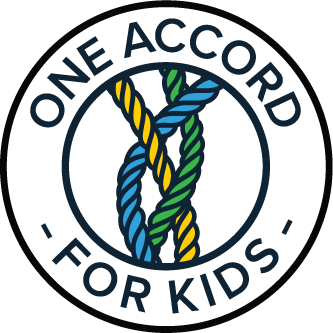Support for Foster Parents Comes from their Community
George Lucas said it best, “creativity isn’t strictly a well of ideas, but an alchemy of people”. The creator of the “Star Wars” empire has found that our best does not come when we have a bunch of ideas in a pot but when we have the right people in the room. This is especially true in the foster care system, where support for foster parents comes from their community.
When we think of improving child welfare, we can often think of tossing ideas into a pot rather than thinking of the people in the room. One such room that is particularly concerned with child welfare in the state is in Austin where our state legislators meet. In 2019 the state legislators tasked the Department of Family and Protective Services (DFPS) to research the resources that are available to licensed foster parents. Earlier this month DFPS published their findings in a Foster Parent Resource Study.
The Study
In all, they surveyed more than 1,400 licensed foster parents across the state. Most (93%) of the homes were licensed through a private foster agency while the rest were licensed through DFPS, an accurate representation of our population. All families must have had a foster child in their home in the past 12 months. As we dig into the findings they don’t present themselves as overly interesting until you drill down into what they mean to the foster families and the children they are caring for.
The Findings
One might think children in care to the state and the families they partner with would have everything they need to thrive. Their findings showed that nearly one in five homes (18%) needed help to maintain the minimum standard required but could not access that help. Sadly 37% of foster families reported that they could not get help covering the basic needs of their children beyond the monthly reimbursement.
Transportation was also problematic. Nearly a fifth of the respondents could not find the help they needed to get their foster children to a medical professional (20%) or to educational activities (18%). Almost a quarter (24%) could not access the help getting their foster child to activities that every child should be a part of (“…activities that promote normalcy”) or could not access help to get the child in their care to events and meetings that maintain the relationship with the child’s biological family. These numbers point to the logistical difficulties presented with fostering they weigh on the family giving care but more heavily on the child.
Limitations extend further than just getting to the event. 30% of foster parents could not access help with the cost of the educational and developmental activities; while 33% could not access help with the cost of activities that every child should be a part of (“…activities that promote normalcy”).
Last, statewide, foster parents expressed an inability to access help to understand the relationship between them and the foster child’s biological family (24%), filling out paperwork (33%), understanding the foster care system (35%), the different roles of all the people supporting the child they are caring for (38%), and even their responsibility as a foster parent (24%).
What does this mean?
All this points to an arrangement intended to serve vulnerable children that are overwhelmed making the children and the adults that serve them further isolated.
If we took the advice of George Lucas, we would find strength in the diverse resources we have, not in a big room full of lawyers. Some informed and focused West Texans are doing just that; they have decided that these children are ours and should be in our care. They have joined the ranks of foster parents, volunteer as Court Appointed Special Advocates (CASA West Texas and CASA of the Permian Basin), organizations have been formed (Fostering Restoration Ministries and The Attic Foster Network), individuals have begun to take advocacy and support into their own hands (Fostering Without Fear and RePlanted Foster Parent Support group).
If this is eye-opening and you too want to be informed and focused on helping children and families of the Permian Basin, connect with One Accord for Kids on Facebook, Instagram, and our website, and join our e-mail list.
